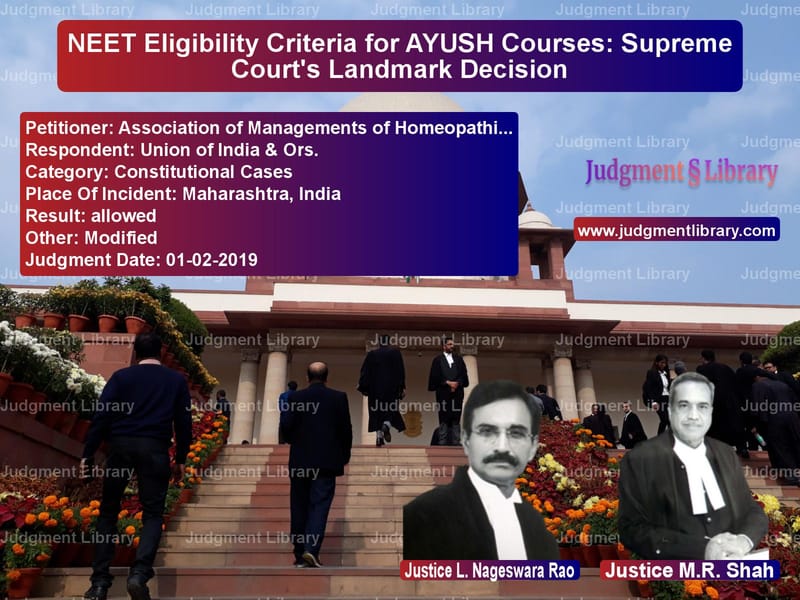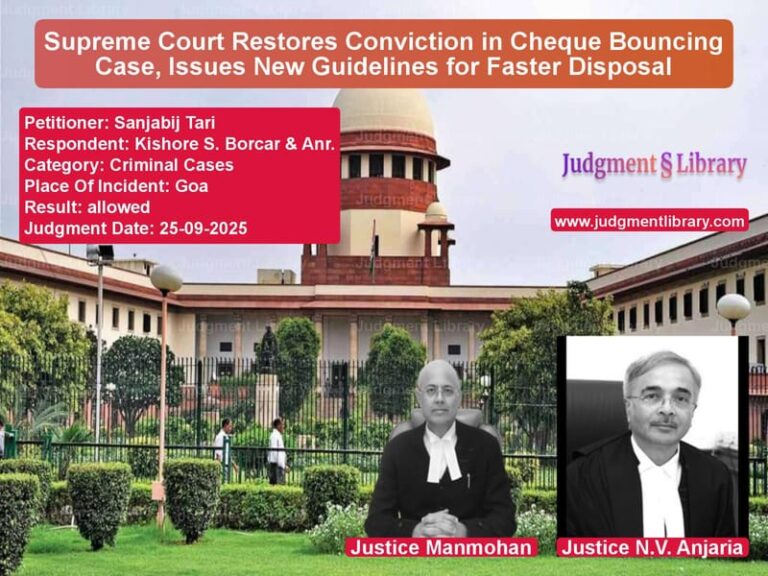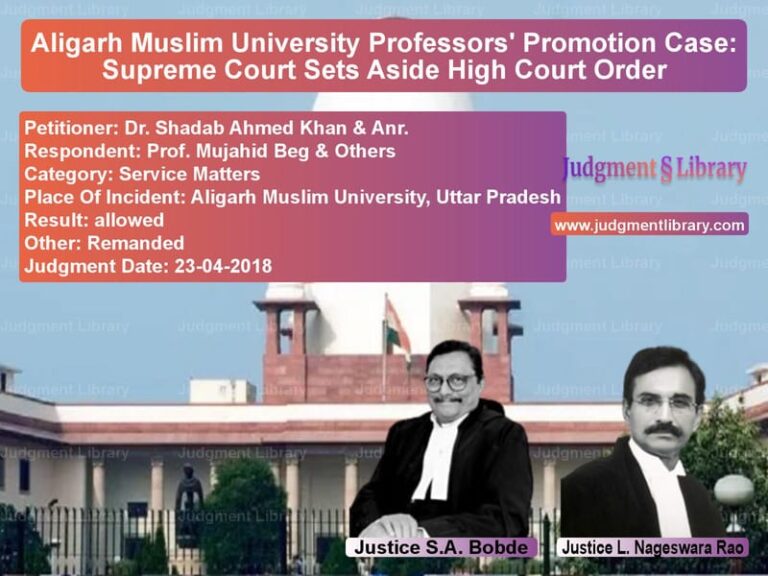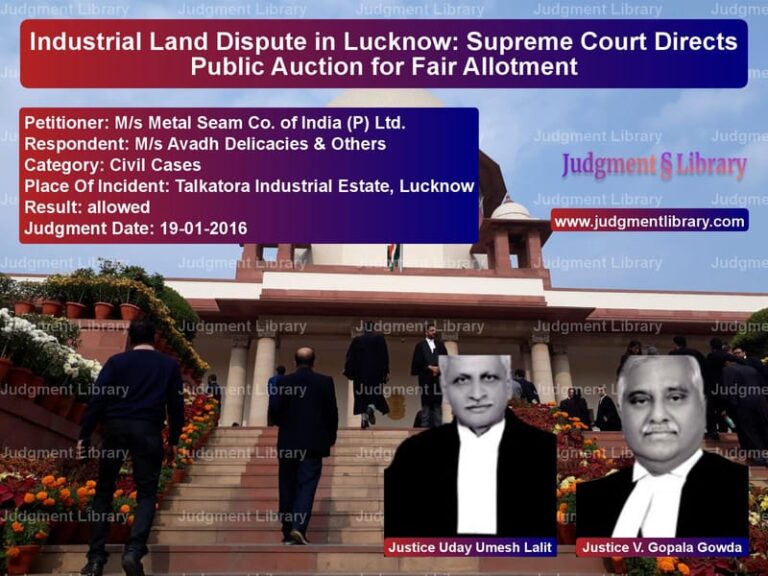NEET Eligibility Criteria for AYUSH Courses: Supreme Court’s Landmark Decision
The Supreme Court of India recently ruled on a critical issue concerning admission to Bachelor of Homeopathic Medicine and Surgery (BHMS) courses. The case, Association of Managements of Homeopathic Medical Colleges of Maharashtra vs. Union of India & Ors., addressed the sudden introduction of minimum percentile eligibility in the National Eligibility cum Entrance Test (NEET) for AYUSH undergraduate courses.
The case emerged after the Ministry of AYUSH mandated, through letters dated 12 February 2018 and 5 June 2018, that admissions to AYUSH courses, including BHMS, must be based on NEET merit lists. A subsequent letter on 11 June 2018 specified that candidates must obtain at least the 50th percentile in NEET for general category admissions and the 40th percentile for reserved category admissions. The Association of Managements of Homeopathic Medical Colleges of Maharashtra challenged this decision, arguing that it was unfairly introduced mid-process.
Background of the Case
The issue stemmed from changes in admission criteria after the admission process had already begun. The information brochure for NEET UG 2018, released on 5 February 2018, did not mention the new percentile requirements. However, on 11 June 2018, the Government of India imposed the minimum NEET percentile rule, leading to confusion and legal challenges.
The Association of Managements of Homeopathic Medical Colleges of Maharashtra filed a writ petition in the Bombay High Court, contesting the sudden introduction of the new eligibility criteria. The High Court upheld the government’s decision, leading to an appeal before the Supreme Court.
Petitioner’s Arguments
The petitioners, represented by senior counsel, argued that:
- The introduction of the 50th percentile requirement was arbitrary and imposed in the middle of the admission process.
- The new rule caused a significant number of seats to remain unfilled, depriving many students of educational opportunities.
- The new eligibility requirement should not have been applied retrospectively and should instead take effect from the next academic year.
- The percentile-based criteria unfairly disadvantaged students who had already completed the admission process under the earlier criteria.
Respondent’s Arguments
The respondents, represented by the Additional Solicitor General, defended the policy change, stating:
- The percentile rule was introduced to maintain academic standards in AYUSH courses.
- Allowing admission without the NEET percentile requirement would dilute the quality of education.
- The 50th percentile requirement had already been relaxed to 35th percentile to accommodate concerns raised by colleges.
- The admission process had a deadline of 15 November 2018, which had already passed, making any changes unfeasible.
Supreme Court’s Observations
The Supreme Court examined the case carefully and noted the conflicting decisions across multiple High Courts regarding AYUSH admissions. The bench, comprising L. Nageswara Rao and M.R. Shah, stated:
“As there is no uniformity in the matter of admission to the 1st year BHMS course for the year 2018-19, as securing minimum marks in NEET is not required in some States pursuant to orders of the High Courts, we are of the opinion that the Appellants are entitled to the relief of admissions being made without reference to the letter dated 11th June, 2018 of Respondent No.1.”
The Court acknowledged that different states were following different admission rules due to various High Court rulings, creating inconsistency in admission policies.
Final Judgment
The Supreme Court ruled in favor of the petitioners and allowed admissions to be conducted based on the original criteria specified in the 5 February 2018 information brochure. Key directives included:
- The new percentile requirement introduced on 11 June 2018 would not apply to ongoing admissions for the academic year 2018-19.
- Admissions to BHMS courses should be completed based on the original eligibility criteria before 15 February 2019.
- Colleges must conduct extra classes to ensure that students admitted under the revised criteria meet the necessary academic requirements.
- The ruling applied only to the 2018-19 academic session and would not serve as a precedent for future cases.
The Court stated:
“This order which is passed in the peculiar facts of the case shall not be treated as a precedent.”
Implications of the Verdict
The Supreme Court’s decision has several significant implications:
- Standardization of Admission Rules: The ruling highlighted the importance of maintaining consistency in admission policies across states.
- Judicial Review of Policy Changes: The case reaffirmed the judiciary’s role in reviewing and rectifying arbitrary policy changes.
- Impact on AYUSH Education: While the ruling allowed flexibility for 2018-19 admissions, it reinforced the necessity of having strict eligibility criteria for future admissions.
With this ruling, the Supreme Court ensured that students were not unfairly disadvantaged by mid-process changes while maintaining the integrity of AYUSH admissions.
Petitioner Name: Association of Managements of Homeopathic Medical Colleges of Maharashtra.Respondent Name: Union of India & Ors..Judgment By: Justice L. Nageswara Rao, Justice M.R. Shah.Place Of Incident: Maharashtra, India.Judgment Date: 01-02-2019.
Don’t miss out on the full details! Download the complete judgment in PDF format below and gain valuable insights instantly!
Download Judgment: Association of Manag vs Union of India & Ors Supreme Court of India Judgment Dated 01-02-2019.pdf
Direct Downlaod Judgment: Direct downlaod this Judgment
See all petitions in Public Interest Litigation
See all petitions in Fundamental Rights
See all petitions in Judgment by L. Nageswara Rao
See all petitions in Judgment by Mukeshkumar Rasikbhai Shah
See all petitions in allowed
See all petitions in Modified
See all petitions in supreme court of India judgments February 2019
See all petitions in 2019 judgments
See all posts in Constitutional Cases Category
See all allowed petitions in Constitutional Cases Category
See all Dismissed petitions in Constitutional Cases Category
See all partially allowed petitions in Constitutional Cases Category







